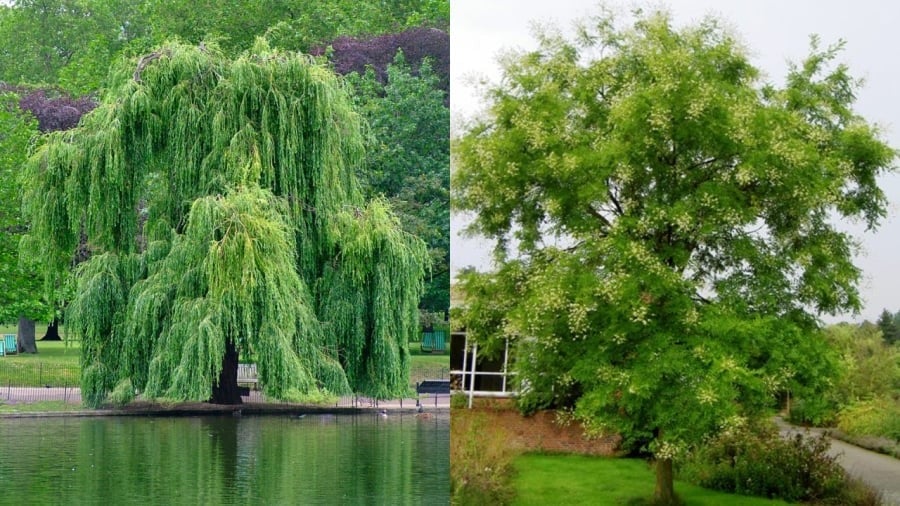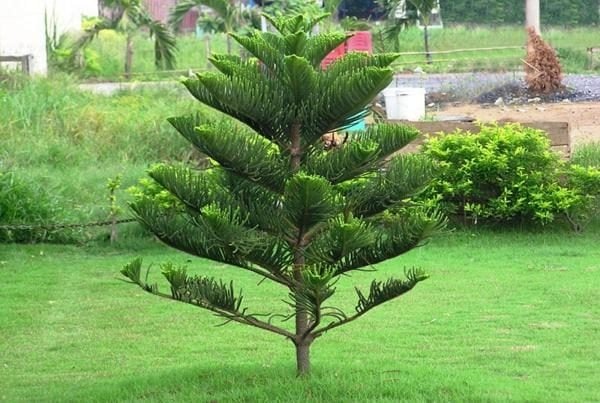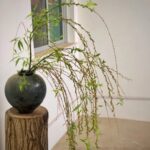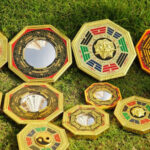Adding indoor plants not only beautifies your space but also purifies the air and holds feng shui significance. Traditional beliefs suggest that indoor plants can attract wealth and ward off misfortune. Specifically, it is advisable to avoid plants with yin characteristics as they are considered unlucky and may negatively influence the family’s fortune.
Willow Tree
The willow tree is synonymous with yin energy and is often mentioned in ancient literature, symbolizing separation and sorrow. For this reason, it is generally not recommended to plant willow trees indoors.
The willow’s delicate, drooping branches swaying in the wind can evoke a sense of melancholy, loneliness, and desolation. Additionally, the tree’s inability to bear fruit may be associated with a lack of offspring, continuing the family lineage.

The Willow Tree – A Symbol of Sorrow and Separation
In Chinese, the character for “willow” sounds similar to “depart,” emphasizing the sense of separation. Thus, having a willow tree indoors may bring bad luck and deplete the family’s wealth, vitality, and blessings.
Moreover, the willow’s robust root system can invade plumbing, affect walls and flooring, and potentially cause safety hazards for the household.
Pagoda Tree
In folk belief, the pagoda tree is also considered a yin plant due to its broad canopy, which casts deep shadows, blocking sunlight and reducing the house’s energy, resulting in a gloomy atmosphere.
Chinese Fir
The Chinese fir, with its ability to grow tall and wide, represents strength, perseverance, longevity, and prosperity. However, as these trees are commonly found in cemeteries, they are associated with strong yin energy, making them an unpopular choice for indoor planting.

The Majestic and Longevity-Symbolizing Chinese Fir
Despite their drought tolerance and pest resistance, the connection of Chinese firs with cemeteries may make some people uncomfortable about having them in their living spaces.
Mulberry Tree
In feng shui, the mulberry tree is believed to carry yin energy as well. The Chinese pronunciation of “mulberry” resembles the word for “mourning,” invoking associations with sadness and misfortune.
Additionally, the mulberry tree’s dense branches and bushy growth create a somber ambiance, further reinforcing its connection to yin energy. Consequently, many people avoid planting mulberry trees in their yards, fearing they may invite bad luck.





































